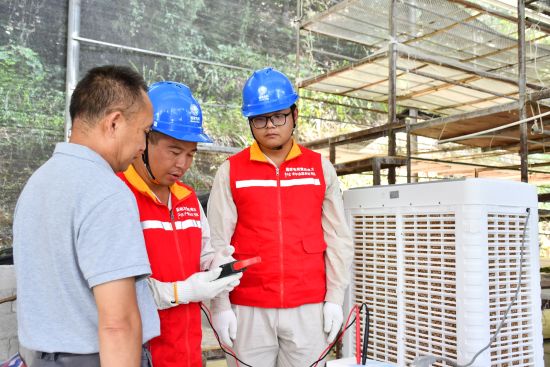In recent days, the persistent hot and dry weather in Qianjiang District, Chongqing, has negatively impacted the growth of silkworms. Local authorities have taken active measures to combat the heat, creating “cooling solutions” to move silkworms into air-conditioned environments.
In Xinhua Township, Qianjiang District, prolonged high temperatures have caused newly distributed silkworms to eat more slowly.
“The optimal temperature for silkworm growth is between 23°C and 28°C. If the temperature inside the silkworm sheds remains above 30°C for too long, the silkworms may eat less, experience delayed development, and in severe cases, suffer from disease or death, leading to reduced cocoon production,” explained a staff member from the Xinhua Township Industrial Development Service Center.
To mitigate the effects of the heat, local officials and sericulture technicians have been visiting households to guide farmers in implementing cooling measures. Xinhua Township has also provided silkworm farmers with air coolers. Inside the silkworm sheds, countless silkworms cover the rearing trays, eagerly consuming fresh mulberry leaves while air coolers continuously circulate cool, misty air to keep them comfortable.
“Considering the physiological needs and habits of young silkworms, we have distributed over 130 air coolers,” said a township official. “By using these coolers, we maintain the temperature inside the sheds below 28°C, ensuring optimal growth conditions.”
As of August 5, Qianjiang District has installed more than 1,200 cooling devices, including air coolers and exhaust fans, in silkworm sheds. Since these devices require continuous operation, the power supply department has increased inspections and infrared temperature monitoring to ensure stable electricity for silkworm farming.
“If any issues are detected, we address them immediately. If temperatures continue to rise, we will expedite capacity expansion procedures to guarantee reliable power supply for the silkworm sheds,” said a power supply team leader.




